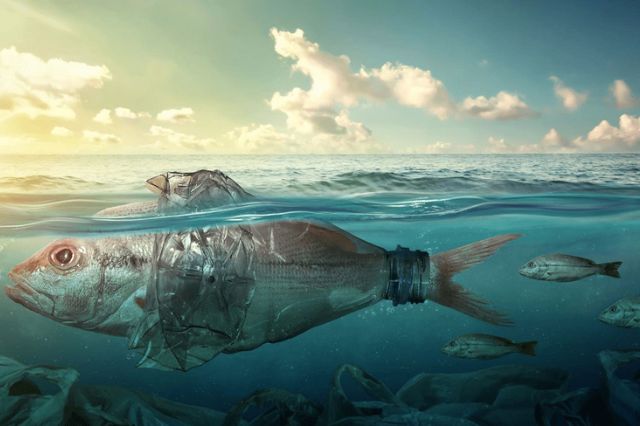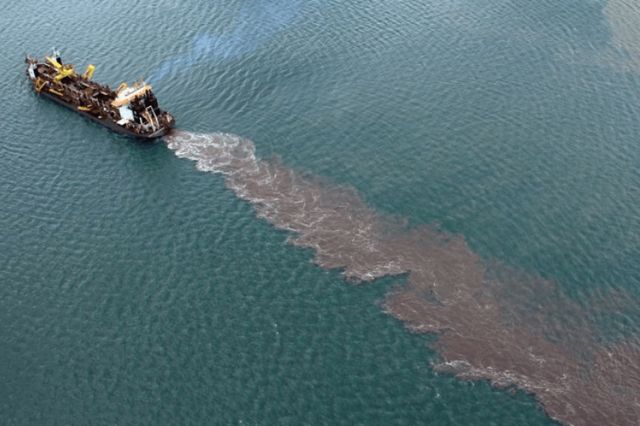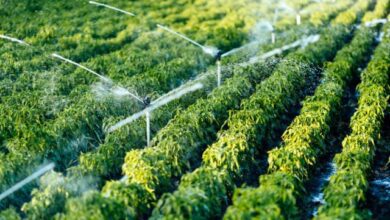What Measures Do Ships Take to Address Marine Pollution?

The maritime industry, which is responsible for transporting cargo, products, or people by sea, is one of the biggest sources of marine pollution. Thanks to the continuous growth of this industry, the ecological system is disturbed, leading to various environmental problems, such as marine waste. Various global organizations and legislations have been established to prevent this phenomenon.
What does every marine vessel need to consider based on measures for the protection of the sea? Let’s find out the answer below.
Reduction of ship waste and maritime pollution
Most of the time, the waste from a ship, like plastic and paper items, cleaning products, food waste, chemicals, and even liquid marine waste, is the culprit for maritime pollution. There need to be many efforts for the creation of a safe environment and the maintenance of a clean marine ecosystem. For this reason, several measures are taken in the construction and operation of ships, including:
- All marine vessels should have waste management systems with appropriate procedures for collection and separation. One example of such a system is centrifugal separators, also known as marine separators. Companies must strictly follow the rules set by the International Convention for the Prevention of Pollution from Ships (MARPOL) for waste collection and install all necessary systems.
- Waste that cannot be disposed of at sea, like plastic objects, metal, glass, batteries, or even fuel residues, must be collected and distributed into special reception facilities.
- To the greatest possible extent, there needs to be a reduction in oily waste and sludge production. The use of clean and treated fuel not only generates less waste but is also more environmentally friendly. To improve the efficiency of the ship’s mechanism, it is important to install special emulsion breakdown filters on the separators.

How to avoid releasing oil and fuel into water
Diesel and oil can cause serious damage to marine life. Fortunately, many measures can be taken in order to avoid any spillage. Some of them include:
- Avoid spilling or filling your ship too much while refueling.
- Make sure portable tanks are secure from water. Also, fill them away from water.
- Be careful when you dispose of waste oils. Proceed to this process using only the appropriate disposal facilities
- In case you notice contaminated bilge water with oil or fuel, transfer it ro secure containers. Never dispose of it on sea.
- To prevent oil from entering the bilge, place a drip tray beneath the engine and gearbox and drain it frequently.
How to secure proper boat and marina operation
For proper marine maintenance, a great amount of solvent, paint, oil, and other contaminants may leak into the groundwater or be immediately washed into surface waters. These chemicals have the potential to restrict bottom growth. Chlorine, ammonia, and phosphates are common ingredients in boat cleaners and can be harmful to fish and plankton. At the same time, petroleum hydrocarbons found in small oil spills from engines and fueling operations have a propensity to stick to watery sediments. The bottom-dwelling creatures at the base of the marine food chain are harmed by them because they persist in aquatic habitats.
For the avoidance of this phenomenon, proper usage of nontoxic cleaning products is necessary. It is equally important to keep all motors and the engine equipment well-tuned. This procedure prevents any fuel licks. At the same time, it improves the vessel’s efficiency.
Tips for waste recycling on marine vessels
Waste recycling is an idea that has begun to be implemented on ships to reduce pollution, especially on cruise ships, where generated waste is relatively higher compared to other maritime operations. Some actions that can be taken, in order to reduce these waste include:
- Ship owners and marine operators and organisms should prepare and establish a recycling process system that can be conducted at sea.
- Compactors can be used to compress various materials such as plastic, paper, and metal containers. These materials can then be placed in special recycling bins.
- Waste of oil can be used as an alternative lubricant or as a cleaning tool for vanishing strong stains.”
- Batteries constitute an environmental hazard and should be disposed only on land at specifically designed reception facilities. They could also be recycled on board by installing specialized units that contribute to the separation of their dangerous components.
Finally, it is equally important to have discussions between ship operators and crews regarding marine pollution and encourage actions that contribute to environmental protection. By taking the appropriate measures, it is possible to ensure the health of the marine ecosystem.





